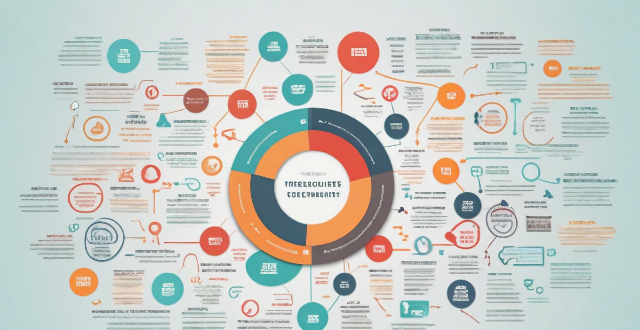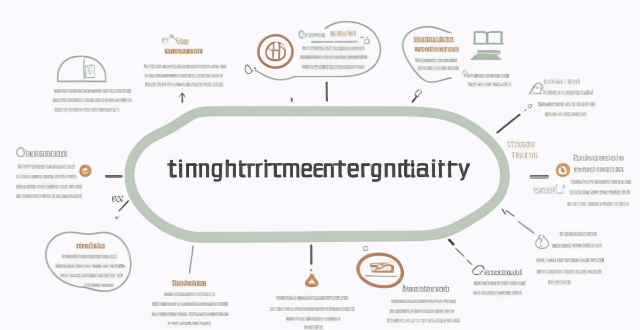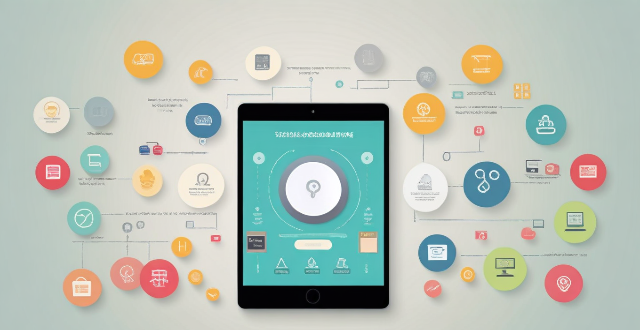Extracurricular Task

How to balance academics and extracurricular activities ?
Balancing academics and extracurricular activities is crucial for a well-rounded education. Here are some tips on how to achieve this balance: ## Prioritize Your Time 1. Create a schedule: Make a list of all your academic and extracurricular commitments, including classes, homework, study time, and extracurricular activities. Assign specific times for each task and stick to the schedule. 2. Set priorities: Identify which tasks are most important and prioritize them accordingly. For example, if you have an upcoming exam, you may need to allocate more time to studying than participating in a sports game. 3. Learn to say no: It's okay to decline invitations or opportunities if they conflict with your academic responsibilities. Be honest with yourself about what you can realistically handle. ### Manage Your Time Efficiently 1. Use a planner: Keep track of deadlines, assignments, and extracurricular events in a planner or calendar app. This will help you stay organized and avoid last-minute cramming sessions. 2. Break down tasks: Large projects or assignments can be overwhelming. Break them down into smaller, manageable tasks and tackle them one at a time. 3. Minimize distractions: Turn off your phone, close unnecessary tabs on your computer, and find a quiet place to study. Eliminating distractions will help you focus and complete tasks more efficiently. ### Seek Support When Needed 1. Talk to teachers: If you're struggling to balance academics and extracurriculars, talk to your teachers. They may be able to offer advice or adjust deadlines to accommodate your schedule. 2. Join a study group: Studying with peers can help you stay motivated and accountable. Plus, it's a great way to make new friends who share similar interests. 3. Seek guidance from mentors: Find someone who has successfully balanced academics and extracurriculars before, such as an older sibling or a teacher. They can provide valuable insights and advice based on their experiences.

How do extracurricular activities help in developing leadership skills ?
Extracurricular activities are crucial for developing leadership skills in students. They provide opportunities to take on responsibilities, make decisions, work collaboratively, and build confidence. These experiences teach time management, task prioritization, problem-solving, risk assessment, consensus building, effective communication, cooperation, teamwork, overcoming fears, self-efficacy, and feedback for growth. Overall, extracurricular activities help students become effective leaders in their academic lives and future careers.

Can extracurricular activities help in getting scholarships for college ?
**Extracurricular Activities and College Scholarships** This article explores the role of extracurricular activities in securing scholarships for college. It highlights how these activities help in developing essential life skills, showcasing talents, and building a strong resume, which are highly valued by scholarship committees. The article also discusses specific ways in which extracurricular activities can aid in getting scholarships, such as demonstrating leadership skills and academic achievements, enhancing personal statements, and increasing scholarship opportunities. Overall, it emphasizes the importance of participating in extracurricular activities throughout one's academic journey to improve chances of receiving college scholarships.

How do extracurricular sports activities contribute to overall student development ?
The text discusses the importance of extracurricular sports activities in student development. It highlights that these activities not only promote physical fitness but also contribute to various aspects of personal growth, including social skills, leadership abilities, and time management. The author explains how participating in sports can help students maintain good physical health, develop social skills through teamwork, foster leadership abilities, and learn effective time management skills. The text concludes that extracurricular sports activities are an essential component of overall student development as they offer numerous benefits beyond just physical fitness.

How do extracurricular activities contribute to the development of student leaders ?
**The Role of Extracurricular Activities in Nurturing Student Leaders** **Skill Development:** Extracurricular activities offer a platform for students to acquire and refine various skills, such as communication, teamwork, time management, and problem-solving. **Confidence Building:** Involvement in extracurricular activities often leads to increased self-assurance through taking initiative and overcoming challenges. **Interpersonal Abilities:** Engaging in extracurricular activities fosters key interpersonal abilities like networking, empathy, emotional intelligence, and influence. **Real-World Experience:** Extracurricular activities simulate real-world experiences where leadership is crucial, teaching organizational skills and adaptability. **Responsibility and Commitment:** Participation teaches responsibility and commitment through accountability and dedication to practice or training. **Conclusion:** Extracurricular activities serve as a laboratory for students to experiment with leadership styles, make mistakes, learn from them, and grow into well-rounded individuals ready to take on future challenges.

How to manage time effectively while participating in multiple extracurricular activities ?
Effective Time Management for Multitasking in Extracurricular Activities is crucial to ensure personal growth and skill development while balancing various commitments. Strategies include prioritizing activities, planning ahead, creating a schedule, minimizing distractions, delegating when possible, reflecting and adjusting, maintaining a healthy lifestyle, and avoiding overcommitment. Following these steps helps manage time effectively and enjoyably in multiple extracurricular activities, with a focus on adaptability and self-care.

How do I balance my academic responsibilities with extracurricular activities ?
Balancing academic responsibilities and extracurricular activities requires effective time management, prioritization, setting realistic expectations, seeking support when needed, maintaining a healthy lifestyle, and reflecting on progress to adjust strategies.

Can extracurricular activities improve academic performance ?
Extracurricular activities can improve academic performance by developing time management skills, increasing motivation and engagement, enhancing social skills and networking, and providing stress relief and mental health benefits.

What are the benefits of participating in extracurricular activities ?
The text discusses the advantages of participating in extracurricular activities. It mentions that such activities promote personal development, socialization and networking, time management, leadership experience, and college and career preparation.

What are some effective time management techniques for students ?
Effective time management techniques for students include prioritizing tasks, setting goals, creating a schedule, utilizing time management tools, minimizing distractions, and taking breaks. These strategies help students focus on important tasks, allocate time efficiently, avoid procrastination, and maintain a healthy work-life balance.

What are the benefits of extracurricular activities for teenage development ?
This article discusses the benefits of extracurricular activities for teenage development, including improved social skills, personal growth and self-discovery, academic success, physical health and well-being, and lifelong skills and habits.

What is the impact of school size on the overall learning experience ?
School size affects academic performance, social interactions and extracurricular activities. Small schools offer personalized attention and strong teacher-student relationships but may lack diversity and extracurricular options. Large schools provide diverse course offerings and a wide range of extracurricular activities but may have limited personalized attention and increased competition. Choosing the right school size depends on individual needs and preferences for the best learning experience.

What should I look for in a school's extracurricular activities program ?
When considering a school's extracurricular activities program, look for diversity of options, quality leadership, opportunities for growth and development, and inclusivity and accessibility. A well-rounded program will foster personal growth, leadership skills, and community among participants.

How to choose the right extracurricular activity for your child ?
Choosing the right extracurricular activity for your child is crucial for their development and well-being. Consider your child's interests, skills, and abilities, evaluate the time commitment and logistics, seek recommendations and read reviews, and involve your child in the decision-making process to help them choose an activity they will enjoy and benefit from.

What are the most popular extracurricular activities in high school ?
The text discusses the various extracurricular activities available in high school. These activities provide opportunities for students to pursue their interests, develop new skills, and build relationships outside of the classroom. The most popular activities include sports, music and theatre, academic clubs, community service and volunteering, hobby and special interest clubs, and athletic support groups. Participating in these activities can help students discover their interests, build character, and create lasting memories.

What are the benefits of joining a sports team as an extracurricular activity ?
Joining a sports team as an extracurricular activity can provide numerous benefits for students, including improved physical fitness and health, socialization and teamwork skills, time management and discipline, leadership and responsibility, mental health and stress relief, and the development of lifelong skills and habits. Overall, participating in sports can have a positive impact on various aspects of student life.

How to start a new extracurricular club at school ?
Starting a new extracurricular club at school can be an exciting and rewarding experience. It allows you to pursue your interests, meet new people, and develop leadership skills. Here are the steps to follow: 1. Identify your interests and goals for starting the club. What do you want to achieve? Is it to learn a new skill, share your passion with others, or make a difference in your community? Having a clear vision will help you stay motivated and focused throughout the process. 2. Research existing clubs at your school to see if there are any similar groups already in place. This will help you determine if there is a demand for your proposed club and what unique aspects you can bring to it. 3. Gather support from other students who share your interests and goals. Talk to them about your idea and ask if they would be interested in joining. You can also seek advice from teachers or staff members who may have experience starting clubs. 4. Create a proposal that outlines the purpose, goals, and structure of your club. Include details such as meeting times, membership requirements, and potential activities. Make sure your proposal is well-organized and clearly communicates your vision. 5. Submit your proposal to the appropriate person or committee at your school. This may vary depending on your school's policies and procedures. Be prepared to answer questions and provide additional information if needed. 6. Once your proposal is approved, start recruiting members by spreading the word through posters, social media, and word of mouth. Host an interest meeting or event to introduce potential members to your club and its activities. 7. Plan activities and events that align with your club's goals and interests. This could include workshops, guest speakers, service projects, or competitions. Make sure to involve your members in planning and decision-making processes. 8. Promote your club through various channels such as school announcements, newsletters, and social media platforms. Attend school events and showcase what your club does to attract more members and raise awareness. 9. Regularly evaluate your club's progress and adjust accordingly. Solicit feedback from members and stakeholders to improve and ensure that your club continues to meet its goals and objectives.

What is the TCFD (Task Force on Climate-related Financial Disclosures) ?
The Task Force on Climate-related Financial Disclosures (TCFD) is an initiative by the Financial Stability Board aimed at standardizing how companies report climate-related financial impacts. It covers four main areas: governance, strategy, risks and opportunities, and metrics and targets. By adhering to TCFD guidelines, companies can enhance transparency, improve risk management, align with sustainable development goals, and boost their reputation among stakeholders.

How can I prioritize tasks effectively to manage my time better ?
Effective time management involves prioritizing tasks to improve productivity and reduce stress. The process begins with identifying goals, followed by using the Eisenhower Matrix to categorize tasks based on urgency and importance. Breaking down large tasks, maintaining a to-do list, and setting realistic deadlines also aid in efficient task prioritization. These strategies help manage time effectively and achieve success in personal and professional life.

How can I stay motivated and avoid procrastinating on important tasks ?
Strategies to overcome procrastination include setting clear goals, creating a schedule or to-do list, eliminating distractions, and staying accountable. Breaking down goals into smaller tasks can also help in maintaining motivation.

Can a single motor drive be used for heavy-duty tasks ?
A single motor drive can indeed be used for heavy-duty tasks, but it depends on several factors such as the type of motor, its power rating, and the nature of the task. There are various types of motors available, each with its own set of advantages and disadvantages. The power rating of a motor is an important factor to consider when determining whether it can handle heavy-duty tasks. The nature of the task is another critical factor to consider. By carefully considering these factors and choosing the right motor for the job, you can ensure that your system is reliable, efficient, and effective.

What are the best apps for organizing and managing tasks on an iPhone ?
In today's fast-paced world, managing tasks effectively is crucial for productivity and success. With the increasing use of smartphones, there are numerous apps available that can help you organize and manage your tasks on an iPhone. In this article, we will discuss some of the best apps for organizing and managing tasks on an iPhone. Some of the best apps for organizing and managing tasks on an iPhone include Todoist, Things, OmniFocus, Microsoft To Do, and Any.do.

How do I find scholarships specific to my field of study ?
Finding scholarships specific to your field of study can be a challenging task, but it is definitely worth the effort. Here are some steps you can take to find scholarships that match your academic interests and career goals: 1. Research your field thoroughly to identify key organizations, associations, and institutions that offer scholarships related to your area of interest. 2. Use online scholarship search engines such as Fastweb, ScholarshipOwl, and Cappex to find scholarships based on your academic achievements, extracurricular activities, and career goals. 3. Check with your school's financial aid office for information about scholarships specific to your field of study and resources such as scholarship databases or lists of local organizations that offer scholarships. 4. Attend scholarship workshops and events hosted by your school or local community organizations to network with professionals in your field and learn about scholarship opportunities. 5. Contact professional organizations and associations in your field directly to find out about available scholarships and application requirements.

What are some effective strategies for beating procrastination ?
Strategies for Beating Procrastination include setting clear goals, breaking tasks into smaller chunks, using time management tools, eliminating distractions, rewarding oneself, getting an accountability partner, and practicing mindfulness. These strategies can help individuals overcome procrastination and increase productivity by focusing on specific tasks, prioritizing activities, avoiding interruptions, staying motivated, holding oneself accountable, and becoming more aware of their thoughts and feelings.

How can I improve my productivity by managing my time better ?
Managing your time effectively is crucial for improving productivity. Here are some tips on how to do so: Create a To-Do List - Prioritize Tasks - Break Down Larger Tasks Use Time Management Techniques - Pomodoro Technique - Time Blocking Eliminate Distractions - Turn Off Notifications - Create a Distraction-Free Environment Take Breaks and Rest - Schedule Breaks - Get Enough Sleep Learn to Say No - Set Boundaries - Delegate Tasks

How can I overcome procrastination and stay motivated to study ?
Procrastination is a common problem that affects many students. It can be challenging to stay motivated and focused on your studies, especially when there are so many distractions around you. However, there are several strategies you can use to overcome procrastination and stay motivated to study. Here are some tips: - Set clear goals for yourself. Make sure your goals are specific, measurable, achievable, relevant, and time-bound (SMART). For example, instead of saying "I want to do well in my math class," say "I want to score at least 90% on my next math test." Having a clear goal will help you stay focused and motivated. - Break tasks into smaller, more manageable chunks. Large tasks can be overwhelming and lead to procrastination. To avoid this, break your tasks into smaller, more manageable chunks. For example, if you have a research paper to write, break it down into smaller tasks such as selecting a topic, conducting research, creating an outline, writing the introduction, etc. Completing each small task will give you a sense of accomplishment and keep you motivated. - Create a study schedule. Creating a study schedule can help you stay organized and on track. Allocate specific times for studying, breaks, and other activities. Stick to your schedule as much as possible, but also be flexible enough to adjust it if necessary. Having a plan will help you avoid wasting time and reduce the likelihood of procrastination. - Eliminate distractions. Distractions can easily lead to procrastination. To avoid this, eliminate distractions such as social media, television, or video games during your study time. Find a quiet place where you can focus without interruptions. Turn off your phone or put it on silent mode to avoid distractions from notifications. - Use time management techniques. Using time management techniques such as the Pomodoro technique or the Eisenhower matrix can help you stay focused and productive. The Pomodoro technique involves working for 25 minutes and then taking a five-minute break. The Eisenhower matrix helps you prioritize tasks based on their urgency and importance. These techniques can help you manage your time effectively and reduce procrastination. - Reward yourself. Rewarding yourself after completing a task can help you stay motivated. Set up rewards for yourself after completing each task or reaching a milestone. For example, you could treat yourself to a favorite snack or watch an episode of your favorite TV show after finishing a study session. This will give you something to look forward to and keep you motivated. - Seek support. Finally, seek support from friends, family, or teachers if you're struggling with procrastination. They can offer encouragement, advice, or accountability to help you stay on track. Joining a study group or finding a study partner can also provide motivation and support. In conclusion, overcoming procrastination requires discipline, planning, and self-motivation. By setting clear goals, breaking tasks into smaller chunks, creating a study schedule, eliminating distractions, using time management techniques, rewarding yourself, and seeking support, you can stay motivated and focused on your studies.